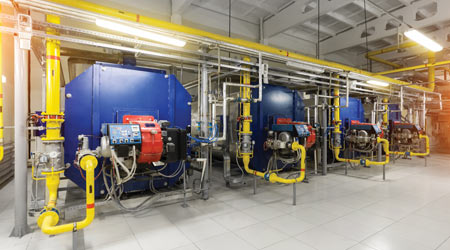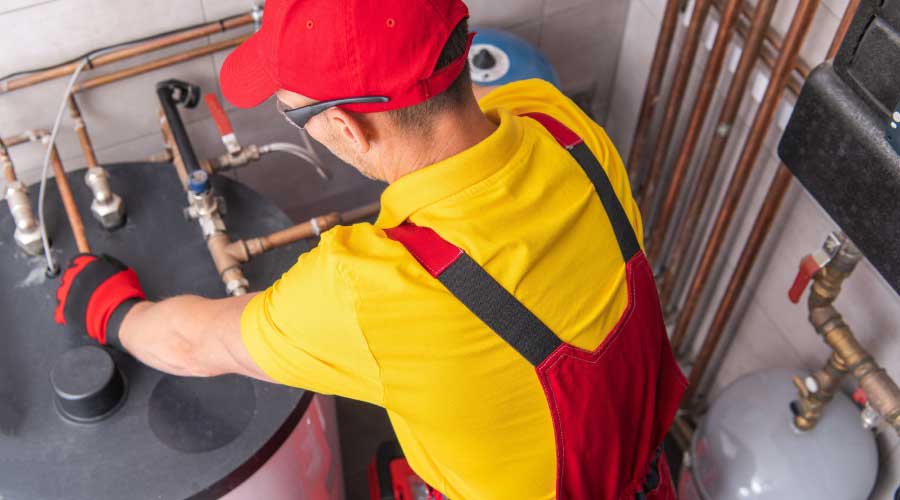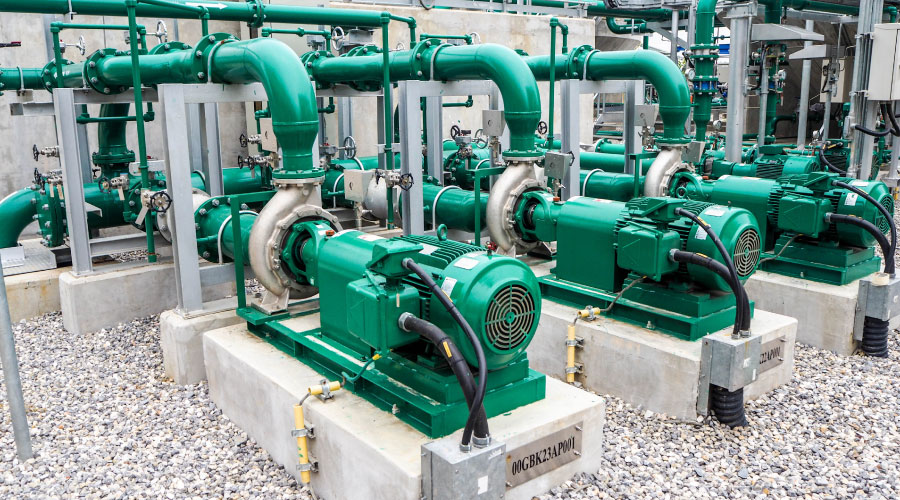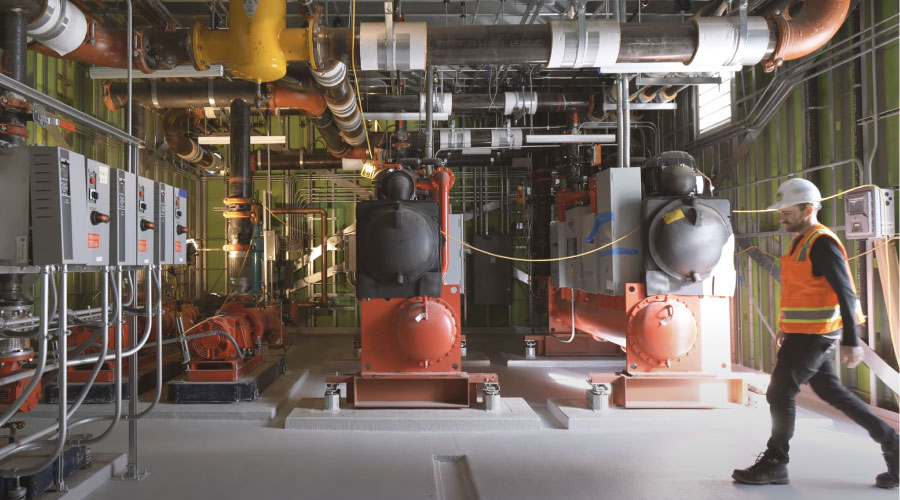 Advances in boiler and water-heater designs and control systems give managers and technicians effective tools to meet performance demands.
Advances in boiler and water-heater designs and control systems give managers and technicians effective tools to meet performance demands.Smart Specification of Boilers and Water Heaters
Training, maintenance and smart decision making can help managers maximize the investment in essential technology
As with all building components, boilers and water heaters have a finite performance life. Good maintenance practices can extend service lives but only so far. Eventually, all boilers and water heaters require replacement. The issue for managers is determining whether they should repair or replace a particular system. While no single factor drives the decision-making process, managers can determine which option is most appropriate for their circumstances by looking at a number of issues particular to their application.
The best place to start is with the age of the boiler or water heater. A condensing boiler has a service life of 15-20 years. Cast iron boilers have service lives of 30-40 years. And while many boilers can operate well beyond their rated service lives, the question becomes whether it makes economic sense to pay for major repairs to an older unit. Minor repairs, yes, but a major repair or overhaul, maybe not.
Next, managers need to consider the boiler’s history of maintenance costs, which increase with the age of the system. That is normal, but managers must look beyond the costs. What do the maintenance trends show? Are they increasing slightly or rapidly? A boiler with rapidly increasing maintenance costs might be a candidate for replacement.
Beyond the maintenance cost history of the boiler, managers need to look at the maintenance tasks themselves. What kind of repairs and modifications have been made to the boiler? Why were they made? Did conditions in the facility change enough that technicians had to modify the boiler system, or was a failure within the boiler that made the repair or modification necessary? Do those same conditions exist today? Have conditions changed in the facility that affect boiler operations or its needed capacity?
The availability of replacement components is also an important factor to consider. Are repair parts readily available, or do maintenance personnel have to make their own? Does the manufacturer still support the boiler’s control system, or is a total upgrade necessary?
Technicians need to open and inspect most boilers each year. Annual inspections are among the best means of preventing a boiler failure, but an inspection also can provide valuable information when facing the repair-or-replace decision.
Simply having passed an inspection is not enough. Look closely at what the inspection showed. Are there any warped or discolored tubes? Have any tubes already been plugged? Are there signs of cracking? If any of these conditions exist and the boiler is approaching or has reached the end of its rated service life, replacement might be the best option.
New boilers offer a significant increase in operating efficiency over older units, and efficiency often is the deciding factor in the repair-or-replace decision. But before making the decision, managers must perform a cost-benefit analysis. If the decision is to retain the existing boiler, what would it cost annually in terms of maintenance and energy? How much would those costs decrease with a new boiler installation?
Finally, managers must consider the impact of a boiler failure at the worst possible time. If a boiler’s operation is becoming increasingly unreliable, what would be the impact on operations if it failed in the middle of the heating season? How long would it take to make emergency repairs or to replace it? If the boiler’s operation is marginal and an off-season replacement is possible, it is far better to do a planned replacement than an emergency one.
Related Topics:















